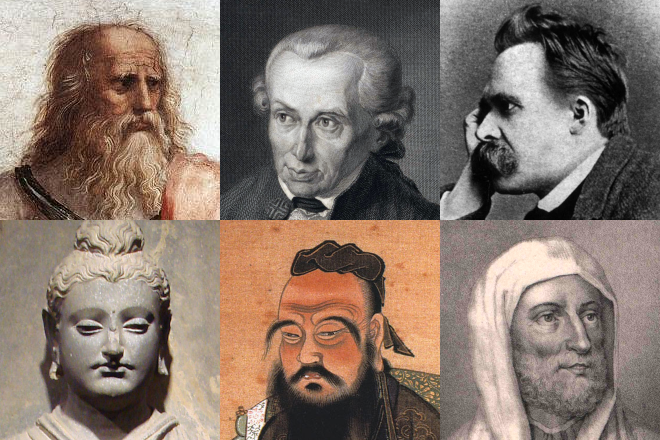Philosophy 101
- Introduction to Philosophy
- Ancient Greek Philosophy
- Renaissance and Enlightenment Philosophy
- Modern Philosophy
- American Philosophy
- Existentialism and Phenomenology
- Analytic Philosophy
- Contemporary and Postmodern Philosophy
- Eastern Philosophy
- Philosophy of Religion
- Philosophy of Science
Introduction to Philosophy
Understanding Philosophy: Definition, Importance, and Relationship with Other Disciplines

Study of the truths and principles of being, knowledge, or conduct.
What is Philosophy?
Philosophy, derived from the Greek words 'philos' meaning love and 'sophia' meaning wisdom, is the love of wisdom. It is a discipline that explores questions about existence, knowledge, values, reason, mind, and language. Philosophy is not merely a set of beliefs, but a critical process of questioning and rational inquiry. It seeks to uncover the fundamental truths about ourselves, the world in which we live, and our relationships with the world and each other.
The Importance and Relevance of Philosophy
Philosophy is essential because it helps us question and interpret our experiences and beliefs. It encourages us to reflect on our actions and decisions, fostering a deeper understanding of the ethical, moral, and political implications of our choices. Philosophy also promotes critical thinking, a skill that is invaluable in all areas of life, from personal decision-making to professional problem-solving.
Moreover, philosophy provides a foundation for all other fields of study. It forms the basis of scientific inquiry, political theory, ethics, aesthetics, and more. By asking fundamental questions about reality, knowledge, and values, philosophy serves as a guide for navigating complex issues and ideas.
The Relationship Between Philosophy and Other Disciplines
Philosophy is closely related to, and often overlaps with, other disciplines. Here are a few examples:
-
Science: Philosophy and science are intertwined. Philosophy asks the big questions that science tries to answer. For instance, philosophy might question what constitutes 'knowledge' or 'truth', while science applies methodologies to discover these truths.
-
Religion: Philosophy and religion both address questions about the meaning of life, the existence of a higher power, and the nature of good and evil. However, while religion often relies on faith and divine revelation, philosophy leans towards rational argument and logical reasoning.
-
Psychology: Philosophy and psychology share an interest in the workings of the human mind, human behavior, and the nature of consciousness. Philosophy often provides the theoretical framework that psychology uses for its practical applications.
-
Arts: Philosophy and the arts both explore expressions of human experience. Aesthetics, a branch of philosophy, studies the nature of beauty and taste, often in relation to art.
In conclusion, philosophy is a broad and complex field that serves as the foundation for understanding our world. It encourages critical thinking, fosters a deeper understanding of our experiences, and provides a framework for other fields of study. By studying philosophy, we equip ourselves with the tools to navigate the complexities of life and contribute meaningfully to society.